NPR host Al Vuona took some time to interview Certified Elder Law Attorney Glenn Matecun to discuss the pressing topic of elder abuse. You can listen to Glenn’s interview on NPR’s “The Public Eye”, airing Sunday, August 11, 2019 at 10:30 p.m. Here is the link to “listen live online” (top right corner of the site): NPR: The Public Eye.
In the meantime, make sure you understand what elder abuse is, recognize the warning signs, and learn what you can do to help. . .
The definition is simple — elder abuse is any act by a caregiver or another person that causes harm to an elderly adult. About 1 in 10 Americans over the age of 60 have experienced some kind of elder abuse. Elder abuse can come in different forms: physical, emotional or financial abuse, or elder neglect. Sadly, studies have shown that the main perpetrators of elder abuse are family members, many times children and grandchildren.
You should know the signs of elder abuse and learn about what you can do to help:
Physical Abuse
Physical abuse includes causing physical pain or injury to a senior. Signs of physical abuse include:
- Unexplained cuts and bruises
- Broken bones
- Sprains
- Marks from ropes or signs of restraint
- Internal injuries or bleeding
- The elderly person reports being hit or mistreated
Emotional Abuse
Emotional abuse involves causing mental pain or distress on a senior. Signs can include:
- Changes in the elder’s behavior or personality
- The elder seems withdrawn or depressed
- A caregiver or family member belittles, threatens, harasses, or isolates the elder
- The elder reports emotional mistreatment
Financial Abuse
Financial abuse occurs when someone takes or improperly uses an elder’s property or assets for their own benefit. Signs include:
- Changes in the elder’s possessions, bank account balance, or funds
- Changes in the elder’s legal documents, such as a will, trust, or power of attorney
- The elder’s assets have been transferred to another person
- Use of the elder’s credit card or money without permission
Elder Neglect
Elder neglect occurs when a caregiver does not provide proper care to an elder, including failing to provide food and water, or deserting the elder. Signs of neglect include:
- The elder has poor hygiene
- The elder has experienced unusual weight loss
- The elder has unmet medical needs
- A caregiver has abandoned the elder in a public place
- The elder reports abandonment
What You Can Do to Help
If you are concerned that a loved one or someone you know is experiencing elder abuse, there are steps you can take. You can contact Adult Protective Services (APS) and report your concerns. APS helps protect adults from abuse and exploitation. Michigan APS can be reached at 855-444-3911.
If you have been a victim of elder abuse, you are not alone. Consider telling a family member, friend, or another trusted person of the abuse. You can also reach out to the Eldercare Locator, where an operator will refer you to a local agency that can help you. The Eldercare Locator can be reached at 800-677-1116.
If you believe you or your loved one is at risk of being exploited, consider speaking with an experienced elder law attorney to ensure that you have the advice you need to protect your loved one and their assets. Our office understands the issues seniors face and can help. Please contact us online or by phone to make an appointment to come talk with us.
